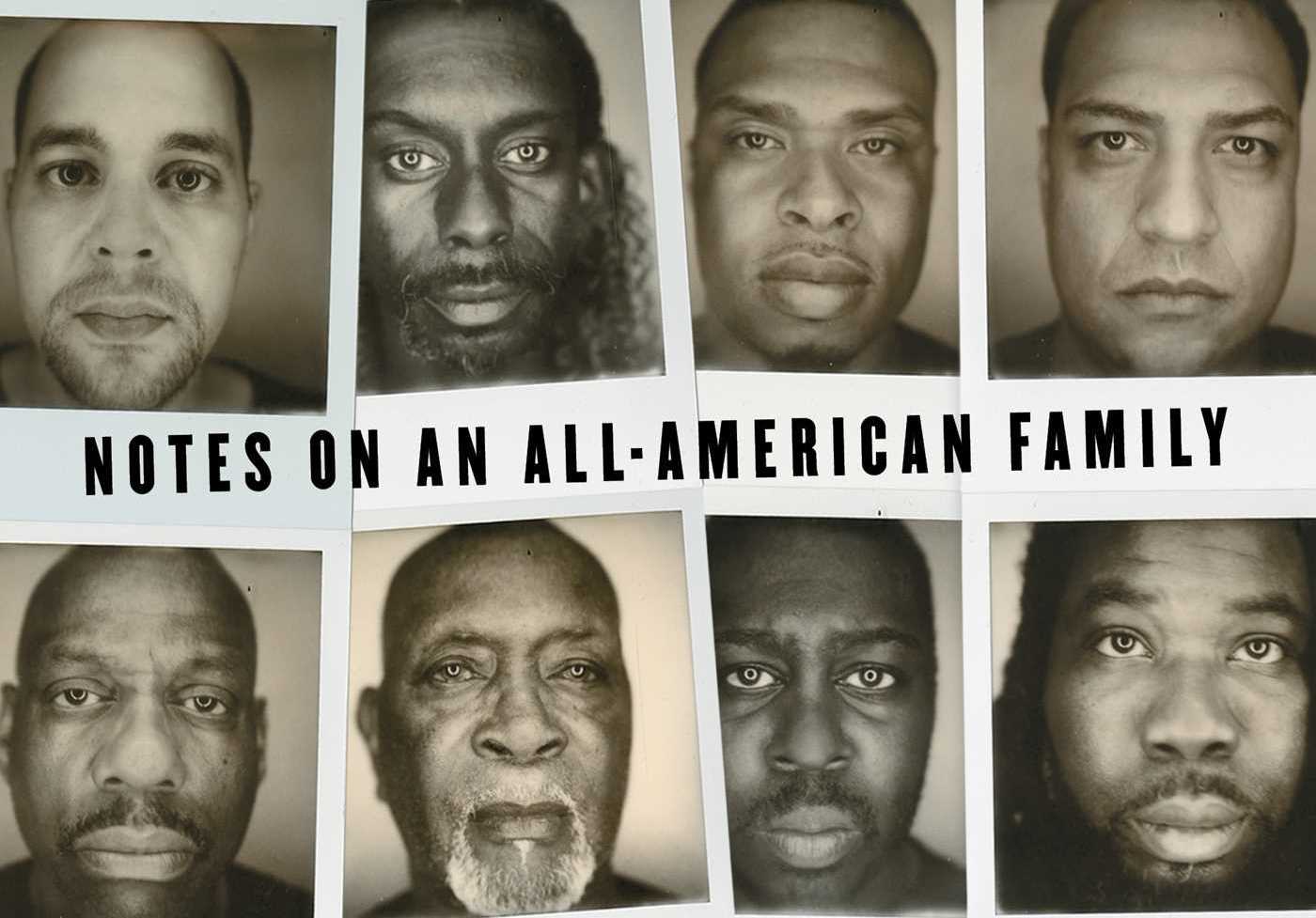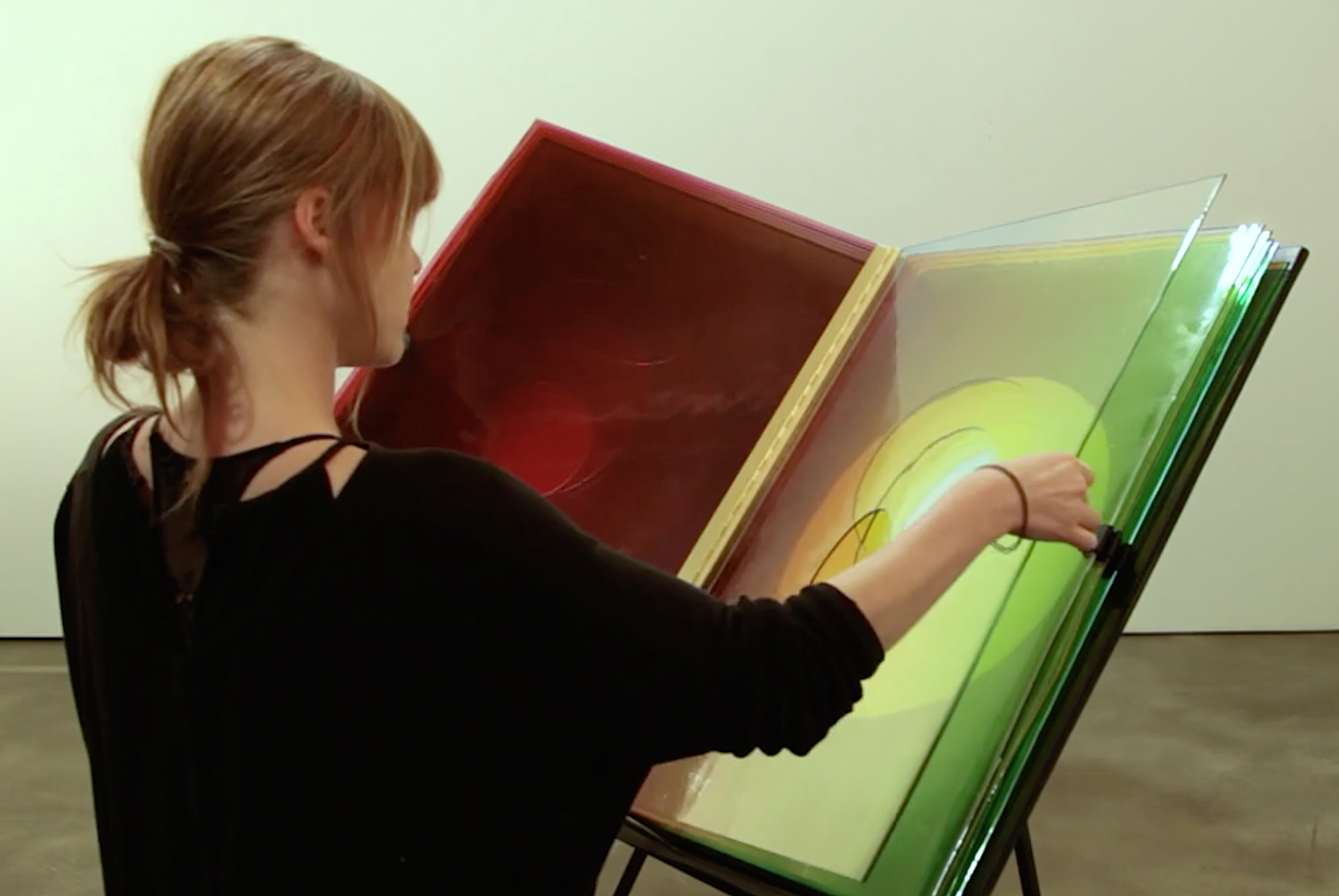interviews
Who Gets to Be All-American?
Mitchell S. Jackson's memoir "Survival Math" explores growing up Black in Portland, the whitest city in America

Mitchell S. Jackson’s Survival Math: Notes on an All-American Family is unlike any other book I’ve ever read. Survival Math is, on one hand, a historical and cultural expedition into Black Portland, a city that has seemingly hidden away its Black population in exchange for white hipsters, gentrification, and a facade of liberal open mindedness. On the other hand, it is a deep dive into Jackson’s family history, self-examination, and how history and the world at large overtly and subliminally motivated the “re-visioning” of Jackson’s life. Just as Erika Taylor wrote in her review for NPR, I too am wary of being too effusive with praise for Jackson’s innovative, intense, and intimate collection of essays for fear of coming across as insincere, but I assure you, the praise in this case is well deserved.
The excellence of Survival Math is not at all surprising. Mitchell S. Jackson’s debut novel The Residue Years won a Whiting Award and the Ernest J. Gaines Prize for Literary Excellence. Jackson has received fellowships from the Cullman Center of the NYPL, the Lannan Foundation, the Ford Foundation, PEN America, TED, New York Foundation for the Arts, and The Center for Fiction. His writing has appeared in The New Yorker, Harpers, The New York Times Book Review, The Paris Review, The Guardian, Tin House, and elsewhere. He is a Clinical Associate Professor of writing in Liberal Studies at New York University.
Mitchell S. Jackson and I chatted about Black Portland and who gets to be all-American.
Tyrese L. Coleman: I’ve been dying to ask you about the men on the cover of Survival Math. Who are they and what is your relationship to them?
Mitchell S. Jackson: Those men are my kinfolk. They include my brothers, uncles, cousins, grandfather, and a nephew. They are the men whose stories compose the Survivor Files.
TLC: Part of what I find striking about the cover are these black and white images of Black men and then the book’s subtitle “Notes on an All-American Family.” It reminds me of a tweet from Tayari Jones where she said that the question she is asked the most is why she titled her book An American Marriage, “because it is confusing for someone like me to use ‘American’ without another word in front of it.” But, you do add another word in front of it: “All.” Your family feels very American to me but I imagine there will be some readers who will question why you included those words in the book’s title. Can you talk about that?
MSJ: Well, I guess I could start with pointing out something others have: if you don’t fit into the dominant group, you often get hyphenated: Asian-American, Hispanic-American, African-American. Those hyphenates seem a part of the great project of othering. A part of me calling them all-American is challenging the idea of who is American. In “American Blood” I claim that the people who are subjugated, oppressed, disenfranchised — and despite those harms, maintain some sense of national pride — might be the most American. The all of the subtitle is a shorthand way of asserting that claim. I want readers to question why it’s there, which is simultaneously an invite to challenge their perception of Americanness of citizenship of belonging, which as I see it, also an invitation to assess their perception of the value of a human being.
If you don’t fit into the dominant group, you often get hyphenated. Those hyphenates seem a part of the great project of othering.
TLC: The book is separated into four different sections: “Who Are We?” “What Have We Learned?” “What Have We Endured?” and “How Do We Proceed?” but within each section, there is even more structure, with poems and essays that reflect the nature of each section, and then at the end of each section, are Survivor Files. Can you talk more about the Survivor Files? Where did they come from and can I assume that the Survivor Notes correspond to the pictures preceding them?
MSJ: The Survivor Files include the portraits of the men on the cover and also a short narrative about a personal crucible. To obtain that story, I asked each of them the same question: What’s the toughest thing you’ve survived? I wrote the stories in the second person because I think that POV is dynamic in that is assumes the character of a first-person narrative but also invites the reader to imagine themselves as the protagonist of the story. Just who is the you? There’s something else about the stories: there’s a nod in each one of them to the past and the future. I mention something that happened to them before whatever is the central conflict and something that happens to them after the central conflict. That started with the first file I wrote which is also the first file in the book. And since I did it with the first one, I challenged myself to be consistent. My old mentor Gordon Lish used to counsel, “What you do once, do twice.”
TLC: You write about growing up in Portland, Oregon. I’ve only been to Portland once, but will be going back soon for AWP. Coming from the D.C. area, I simultaneously loved and hated the city. I’m no expert (obviously) but it felt like a place that wanted to rise above American conservatism while embracing fascism, as if those two seemingly opposing ideals went hand in hand, part of a “free-thinking society.”
Your book paints a city that feels utterly Black, but when I was there, it felt completely the opposite. I noticed a lot of nods to white supremacy and white nationalism. There were people working in certain shops with Nazi tattoos. And I also could not stop thinking about the May 2017 attack on the light rail where a white nationalist killed two men who were protecting two black Muslim women. But I couldn’t tell if I was just paranoid about being in such a white place.
Seeking to reconcile the portrait of Blackness you paint of the city and my feelings about the place, does my intuition have any merit? What are your feelings about Portland in regards to the place you grew up in and now when you may visit, but no longer live there?
MSJ: I think your intuition is right. I wouldn’t even call it intuition if you’re seeing Nazi tattoos. Oregon was formed with the explicit intent to exclude blacks and 162 years later the virtual monolith of whiteness in Oregon, in Portland, is the fruit of that telos. When I was growing up, I spent most of my time in the city’s small Black neighborhood: Northeast Portland (the NEP). Since the NEP was essentially my world, I didn’t feel the blatant racism that I might’ve experienced had I lived outside of the neighborhood. I was also ignorant of the state and city’s racist history. Now it seems that both liberals and white nationalist think Oregon and Portland a dandy place to live. The question is, how could it be bastion for groups who hold, at least ostensibly, radically different ideologies? What is it that links to those groups?
Oregon was formed with the explicit intent to exclude blacks and the virtual monolith of whiteness in Oregon is the fruit of that telos.
TLC: Survival Math felt very familiar and accessible for me. I think this is because of the voice. I felt as if we were sitting across from one another and we were just vibing and you were using the same language you would use in conversation, but more poetically eloquent. It gave me the impression that this is a book written by a Black man for a Black audience with no apologies made for anyone who may not catch on to certain turns of phrase or other culturally specific references. I’ve been seeing writing from other Black authors who I feel are almost deliberately eschewing the impulse to write for a more “universal” audience or understanding. Personally, I do. Was that your thought as you started drafting the pieces in this book? Or did the voice come more unconsciously than that? Should a writer, especially a Black writer, ever bow to the impulse of writing in some “universal” voice?
MSJ: One of my favorite essays is James Baldwin’s essay “If Black English Isn’t a Language Then Tell Me What is.” In that essay, Baldwin writes the following: “It goes without saying, then, that language is also a political instrument, means, and proof of power. It is the most vivid and crucial key to identity: It reveals the private identity, and connects one with, or divorces one from, the larger, public, or communal identity.” I agree with Baldwin that language is the most essential part of one’s identity because it’s how we describe ourselves and the world. I’m always trying to find language that asserts my identity. Like everyone else, I contain multitudes, so the language must capture the different aspects of self, must reflect my residence in what has often felt like disparate worlds, must illume that I’ve known what it’s like to run from the police with a pocketful of crack and also what it’s like to chat it up in a Brooklyn brownstone with Pulitzer winners.
TLC: In your essay “Exodus” you talk about the tradition of leaving, of an exodus, for your great grandparents from the South to Portland, but also your own exodus from Portland to New York and the less than straight way you made it out. As I was reading, I kept noticing the aspects of your grandparents’ life that felt very familiar to me, a Southern Black woman. Exodus means to leave or change, but I am struck by what remained, what travelled with the traveler — God, food, comforts of family, traditions. When you made your exodus, what traveled with you?
MSJ: What traveled with me on my West to East exodus was the feeling of having been tested, of having come out — alive — on the other side of trials. I needed that because New York is not an easy city to navigate. There were lean times, particularly in the summers, because I was an adjunct professor for so long and refused to get a job that was outside of the literary life. I also carried with me the belief that community was important, which fueled my desire to build community especially with other writers, once I arrived. Even now, I have been organizing and hosting the Harlem Renaissance Fete for Writers of Color for what will be five years. I hosted it with writer Jacqueline Woodson and editor Tracy Sherrod for several years and this past year, with writer/editor Jennifer Baker. The whole reason for the party is to create community for writers of color, particularly Black writers. One other thing that I brought with me on my exodus was the language of home. I never did conform to the argot of New Yorkers. I wanted to maintain the language of home because I needed it to maintain a sense of self and my for the distinctiveness of my work — I’m committed to writing about home — because I didn’t want to cede the place I loved for a new place, a place that could’ve very easily consumed a huge part of what has grounded me in the world.
The people who are subjugated, oppressed, disenfranchised might be the most American.
TLC: Your piece “Apples”…whew, where to start? First, I think this may have been the first time I’ve read a Black man articulating what Black women have, generally, felt regarding the idealizing of white women by some Black men. But there was something more brutal, less bitter, coming from your perspective. You say in the section titled, “Myths, Fairy Tales, and Legends,” that the apple, which is a metaphoric term you use for white women that incorporates the enticement and temptation they possess for some Black men, that “The apple is part myth….The apple is part legend.” But in some ways, would you also say, that the apple is part reality? Especially when considering what white man have done to protect them, as you say, “in the name of chivalric and paternal protection of the women they’ve invested (burdened?) with the expectation of piousness, who they’ve weighted with lifetime roles as the incubator and progenitor of the white race”? Legend and myths hardly get people killed on the regular. So is some aspect of the apple reality?
Additionally, the apple feels very much a reality in my eyes being a Black woman who has lived in the shadow of this white myth, fairy tale, and legend. Reality in respect to the threats she creates.
MSJ: Yes. The apple is absolutely a reality. A part of was I trying to say was that white men had mythologized their women so that they could perpetrate corporeal oppression. Of course, Black men and Black women were featured targets of that oppression. It’s hard for me to imagine a group more keen, more intelligent, more perceptive, more strong, more resilient, more resourceful, more forgiving, more loving, more sensual, more, more, more than Black women. How could that not be seen as a threat to those intent on subjugating Black folks, which is also another way of saying, to those intent on the project of dehumanizing all those that don’t belong to their so-called race.
TLC: I have a lot of questions for you after reading “The Scale,” where you discuss your “crimes” against women and examine the root, or at least a few roots, of your behavior and what affect that behavior had on women you mistreated, but mainly, I want to know, what happened? What made you decide to do this self-examination? And what did you gain from it?
MSJ: I read an essay years ago in Esquire magazine titled “Why Men Cheat.” It was a candid essay that detailed the rationale and rules of cheating for a single man. He was unapologetic about it too. For obvious reasons, he never identified himself. I was struck by that essay. I didn’t agree with all of his rationale, but I also recognized some of my pathologies in it. The author wrote, “If you cheat, you must believe this much: that fated love is a lie, and monogamous love a deception. If you cheat, these two sentiments are your guiding light. Doesn’t mean you’re incapable of love, doesn’t mean you don’t want what love — or even marriage — can offer. It’s just a paradox. You have what you believe, and it is never the lie. You train your sentiment to fit inside the lie. Your rules fit right inside that sentiment.”
While I didn’t agree wholeheartedly with his thesis, I did recognize my aversion to deep, unguarded love and also the ability to hold paradoxical ideas concerning women. But I also recognized problems with the essay. One stark problem was that the writer never stopped to examine the genesis of his thinking. He seemed resigned to call it a paradox and leave it at that. That is understandable in some sense, since his thinking wouldn’t stand up to reasonable scrutiny. Another glaring problem with the essay was that he didn’t talk at all about the fallout of his deeds. After reading it, I asked myself, what would happen if I endeavored to examine my relationships with women, my pathologies? What would happen if I was honest about the fallout of my deeds?
Later in my thinking — I began writing the essay in 2011 — I also was very much interested in trying to track the historical and philosophical genesis of womanizing. But I also challenged myself to do it without the cover of anonymity. It seemed like if I was sincere about the effort, that I had to own it all the way. And I tried as best I could to cast myself in the most critical light. What I gained from it was a fuller understanding of the harms I’d caused. Fearing what I suspected might be paralyzing guilt, I had long avoided considering the consequences of my actions as much as I could. But in writing the essay, I had to lay them out, not only that, but read them over and over. I also got a chance to speak with some of my former partners about our relationships, and speak to them at a time when the pained I’d caused wasn’t so acute. That again gave me more perspective. I also hope that if any of them choose to read the essay it gives them a sense of understanding. I would hope that it doesn’t act as a trigger for them or any other woman, but I also realize that that’s a risk. To anyone that receives the work in that way, I apologize.
It’s hard for me to imagine a group more keen, more intelligent, more perceptive, more strong, more resilient than black women.
TLC: Also in “The Scale,” you write very candidly about your own egotism, saying “…the crux of my motivation: that, almost always, was the need to satisfy my ego, to prove to myself that I was still capable, that I hadn’t lost the power to, as we say, ‘make it happen.’” And I wonder if the choice of memoir (for you, for me, being that I am also a memoirist, and for others) is an exercise in egotism. The basis of the self-awareness needed to examine oneself has to be rooted in some form of egotism, right? If not (or in addition), where else does the memoirist’s desire to write about themselves come from? What made you write this book?
MSJ: It’s interesting because I never intended to write a memoir. I intended to write essays. My definition of a memoir is this: a narrative composed from experiences. My definition of essay is this: prose focused on a particular subject or idea. Some readers might apprehend the major sections of the book as chapters of the memoir, but I see them as essays. Because I don’t want the essays to be solely or overwhelmingly expository, I ground them in personal experience. Some of that is my experience, but in many cases in the book, it is the experiences of others: my mother, uncles, dad, etc. But again, I always imagined their stories in service of an idea. The idea that poor people might be our greatest patriots, that idea that the chosen people are the righteous that choose themselves, the idea that long-term addiction can be viewed as a long-term marriage. So, I’m not sure if this book evidences the ipseity of a conventional memoirist. I do, however, think my experiences are valuable, but I guess one of the points I’m making in the book is that mine are not the only valuable experiences, not necessarily the most valuable experiences either.
Satisfaction seems like a dangerous place for a writer to reside, one that discourages the motivation one needs to keep going and going.
TLC: In “Revisions,” you use a quote from Toni Morrison, “Endings I always know, because that’s always what the book is about. The problem is getting there.” And you write, “…gleaning the differences between a start and a beginning is crucial to revising one’s self. Starts are beholden in some respect to time. Beginnings are a harvest of timing.” Your exodus was your beginning, but I feel as though all of Survival Math is your start. Are you done revising yourself now? Have you reached a satisfying ending to your story?
MSJ: I hope that me re-visioning my life continues until I die, that I am constantly looking back to inform where to go. While I am proud of completing this book, I’m also relieved that I don’t feel like I’ve reached a satisfying ending. I would actually be scared if I did. Satisfaction seems like a dangerous place for a writer to reside, one that discourages the motivation one needs to keep going and going. The minute I start to believe I’m done revising, I’m in trouble. One could argue it would be the first moment of the end producing strong work. That said, I don’t think I’ll revisit my family in the way that I have in this book. I did it in The Residue Years in fiction and now in Survival Math in nonfiction, and though I’m sure there’s more to say, I don’t see myself reflecting on them in such an explicit and sustained way.
In that sense, Survival Math is the start of me moving into a phase in my writing life where my and my family’s personal stories aren’t the crux of the work. That’s both an exhilarating and frightening prospect for me because I place so much on ethos, so much on the authority one gains from being intimately connected to the content. Luckily, my next project is a novel about a black cult leader in Oregon, and I happen to be close with a couple of people who were in the cult.









